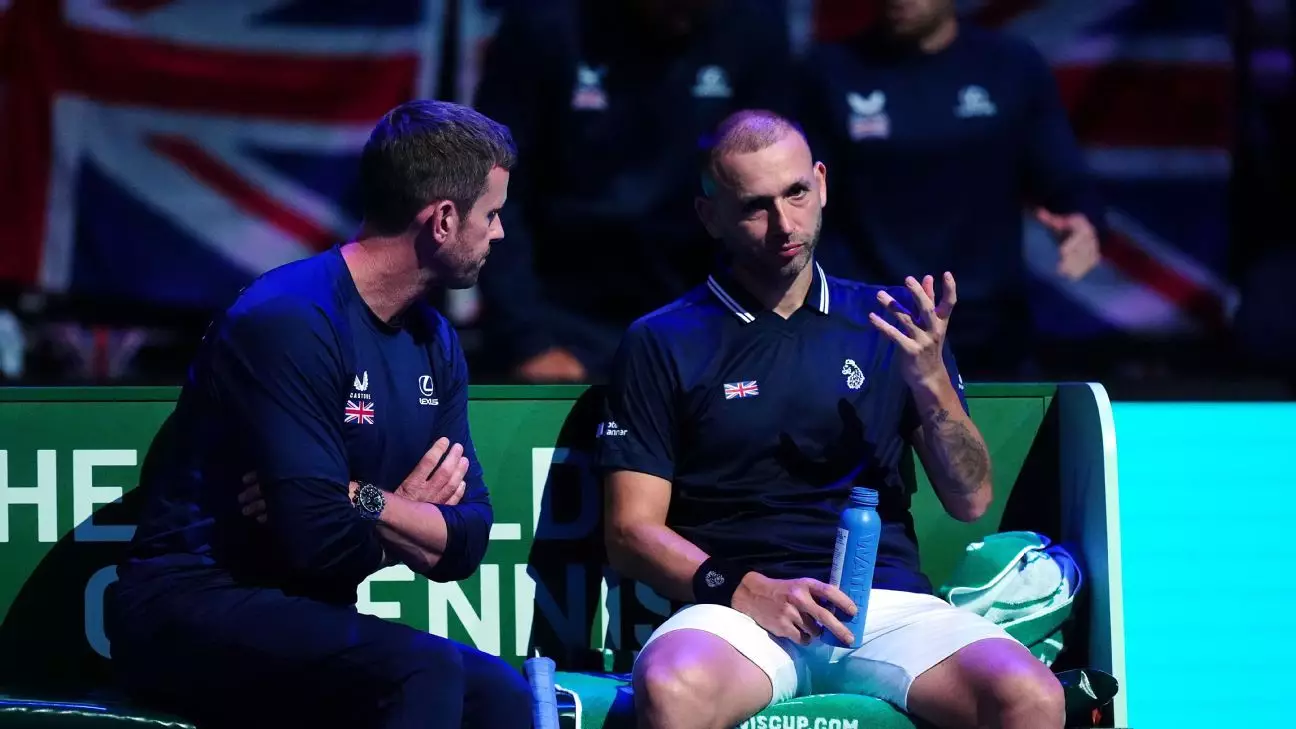Great Britain has sadly bowed out of the Davis Cup after a disappointing group-stage performance against Canada, with Dan Evans facing off against Denis Shapovalov in a match that turned out to be a decisive blow to Britain’s chances. The pressure was palpable as the British team entered this final contest, necessitating victories in all three matches to secure a place in the knockout rounds later this November. Unfortunately, Evans succumbed in straight sets, falling 6-0, 7-5 to the world No. 100, a defeat that foreshadowed the subsequent challenges that lay ahead.
The disparity in performance was starkly evident in Evans‘ match against Shapovalov. The first set unfolded with such ease for the Canadian that it felt more like a warm-up routine than a fierce competition, as he swept through without losing a single game. This effortless display by Shapovalov put him in the driver’s seat early on. Evans, typically known for his grit and resilience, struggled under the weight of expectation in the opening frame.
In the second set, however, a more competitive Evans emerged, displaying moments of promise as he put Shapovalov under pressure, even forcing the Canadian to save multiple break points. This change, while commendable, unfortunately culminated in a frustrating conclusion as Evans faltered in the pivotal final game. An under-hit backhand that hit the net encapsulated his struggle, ultimately extinguishing Britain’s hopes for another Davis Cup run.
Following Evans‘ disappointing performance, Jack Draper took to the court against Felix Auger-Aliassime, reviving memories of their previous encounter at the Cincinnati Open, which ended in controversy. Draper had clinched that match amid questionable circumstances, but this time around, fortune favored the Canadian. The match unfolded in two tightly contested sets, ultimately ending 7-6 (10-8), 7-5 in favor of Auger-Aliassime. This defeat illustrated the inconsistency that plagued the British squad throughout the tournament, where closely fought matches often slipped from their grasp.
As the competition progressed, the last match featured Evans pairing with Neal Skupski against the formidable duo of Shapovalov and Auger-Aliassime. The stakes were high, but the shadow of defeat loomed large over the British team. Ultimately, Canada’s advancement to the next stage, along with Argentina from Britain’s group, highlighted the shortcomings of Leon Smith’s team, which managed only one victory against Finland.
The elimination from the Davis Cup marks not only a missed opportunity for Great Britain but also raises questions about its players‘ preparedness and mental resilience in high-pressure situations. The team’s journey this year serves as a reminder that in tournament play, consistency and the ability to perform under pressure are crucial. Thus, while this year has concluded in disappointment, it beckons a reevaluation of strategies moving forward, in the hope of future success.


Napsat komentář